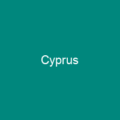Malta is a Southern European island country consisting of an archipelago in the Mediterranean Sea. It lies 80 km south of Italy, 284 km east of Tunisia, and 333 km north of Libya. With a population of about 515,000 over an area of 316 km2, Malta is the world’s tenth smallest country in area. Its capital is Valletta, which is the smallest national capital in the European Union by area at 0.8 km 2.
About Malta in brief
 Malta is a Southern European island country consisting of an archipelago in the Mediterranean Sea. It lies 80 km south of Italy, 284 km east of Tunisia, and 333 km north of Libya. With a population of about 515,000 over an area of 316 km2, Malta is the world’s tenth smallest country in area and fourth most densely populated sovereign country. Its capital is Valletta, which is the smallest national capital in the European Union by area at 0.8 km 2. The official and national language is Maltese, descended from Sicilian Arabic that developed during the Emirate of Sicily, while English serves as the second official language. Malta became a British colony in 1813, serving as a way station for ships and the headquarters for the British Mediterranean Fleet. It was besieged by the Axis powers during World War II and was an important Allied base for operations in North Africa and the Mediterranean. Malta is a tourist destination with its warm climate, numerous recreational areas, and architectural and historical monuments. It has three UNESCO World Heritage Sites: Hypogeum of Ħal Saflieni, VallettA, and seven megalithic temples which are some of the oldest free-standing structures in the world. Malta has had Christians since the time of Early Christianity, though was predominantly Muslim while under Arab rule, at which time Christians were tolerated. Today, Catholicism is the state religion, but the Constitution of Malta guarantees freedom of conscience and religious worship.
Malta is a Southern European island country consisting of an archipelago in the Mediterranean Sea. It lies 80 km south of Italy, 284 km east of Tunisia, and 333 km north of Libya. With a population of about 515,000 over an area of 316 km2, Malta is the world’s tenth smallest country in area and fourth most densely populated sovereign country. Its capital is Valletta, which is the smallest national capital in the European Union by area at 0.8 km 2. The official and national language is Maltese, descended from Sicilian Arabic that developed during the Emirate of Sicily, while English serves as the second official language. Malta became a British colony in 1813, serving as a way station for ships and the headquarters for the British Mediterranean Fleet. It was besieged by the Axis powers during World War II and was an important Allied base for operations in North Africa and the Mediterranean. Malta is a tourist destination with its warm climate, numerous recreational areas, and architectural and historical monuments. It has three UNESCO World Heritage Sites: Hypogeum of Ħal Saflieni, VallettA, and seven megalithic temples which are some of the oldest free-standing structures in the world. Malta has had Christians since the time of Early Christianity, though was predominantly Muslim while under Arab rule, at which time Christians were tolerated. Today, Catholicism is the state religion, but the Constitution of Malta guarantees freedom of conscience and religious worship.
The name Malta is derived from the Greek word meli, possibly for Malta’s unique production of honey; an endemic subspecies of bees live on the island. The Romans called the island Melita, which can be considered either a Latinisation of the Greek or the adaptation of the Doric Greek pronunciation of the same word. In 1525 William Tyndale used the transliteration \”Melite\” in Acts 28: 1 for the New Testament texts that relied on Greek texts instead of Greek instead of The New Testament. It has been a member state of the Commonwealth of Nations and the United Nations since independence, and joined the European EU in 2004; it became part of the eurozone monetary union in 2008. Few other etymological references appear in classical literature, with the term Malta appearing in its present form in the Antonine form of Antonine. The word Malta comes from the Phoenician word Maletha, meaning ‘port’ or ‘haven’ in reference to Malta’s many bays and coves. It is widely used in more recent versions, such as The New International Version of 1901 and The Revised Standard Version of 1946 and The International Standard of 1973. The island has been inhabited from around 5900 BC, since the arrival of the prehistoric settlers of Sicily of the island of Aeterna. It became a colony of the United Kingdom in 1964, with Queen Elizabeth II as its head of state and queen. The country became a republic in 1974.
You want to know more about Malta?
This page is based on the article Malta published in Wikipedia (as of Dec. 06, 2020) and was automatically summarized using artificial intelligence.







